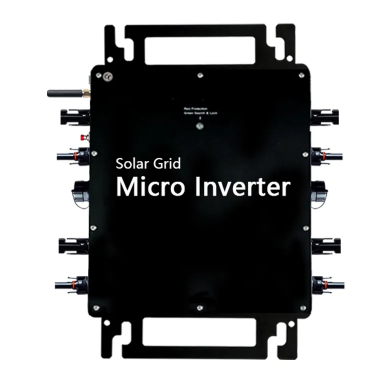
In the ever-evolving landscape of renewable energy, technological advancements continue to redefine the efficiency and effectiveness of solar power systems. Among these innovations, the microinverter stands out as a game-changer, revolutionizing the way we harness solar energy. At the heart of this transformative technology lies a simple yet powerful concept: integrating a microinverter with each solar panel. Unlike traditional centralized inverters, which manage the output of an entire solar array, microinverters operate at the individual module level. This shift represents a paradigmatic leap forward in optimizing solar energy production. One of the key advantages of microinverters is their ability to achieve Maximum Power Point Tracking (MPPT) at the level of each solar panel. MPPT is crucial for ensuring that solar panels operate at their peak efficiency by continuously adjusting to changes in environmental conditions such as sunlight intensity and temperature. With microinverters, each panel can independently maximize its power output, overcoming the limitations of centralized inverters that may be affected by shading or mismatched panels. The implications of this technology are profound. By optimizing the performance of each solar module, microinverters unlock new levels of energy generation efficiency. This means higher overall energy yields from solar installations, translating to increased savings and environmental benefits for users. Moreover, microinverters offer enhanced reliability and durability compared to centralized inverters. In traditional systems, the failure of a single inverter can significantly impact the performance of the entire solar array. However, with microinverters, the modular design ensures that the failure of one unit does not affect the operation of others. This built-in redundancy minimizes downtime and maintenance costs, providing users with peace of mind and long-term reliability. Furthermore, the integration of microinverters with solar panels results in a more streamlined and aesthetically pleasing installation. Without the need for bulky centralized inverters, solar arrays equipped with microinverters have a sleeker profile and blend seamlessly into their surroundings. This not only enhances the visual appeal of solar installations but also facilitates easier maintenance and expansion in the future. The versatility of microinverters extends beyond traditional rooftop solar systems. Their modular design makes them well-suited for a wide range of applications, including residential, commercial, and utility-scale projects. Whether it’s a small rooftop array or a large solar farm, microinverters offer scalable solutions that can adapt to varying project requirements. In addition to their technical advantages, microinverters play a crucial role in driving the widespread adoption of solar energy. By improving energy generation efficiency and reducing maintenance costs, they make solar power more accessible and financially viable for a broader range of users. This democratization of solar energy aligns with global efforts to transition towards sustainable and renewable sources of power. As we look towards the future, the potential of microinverters to further transform the solar energy landscape is immense. Continued research and development efforts are expected to lead to even more advanced and efficient microinverter technologies, further enhancing their performance and reliability. In conclusion, microinverters represent a significant advancement in solar inverter technology, offering unparalleled levels of efficiency, reliability, and versatility. By harnessing the power of microinverters, we can unlock the full potential of solar energy and accelerate the transition towards a cleaner and more sustainable energy future.
|